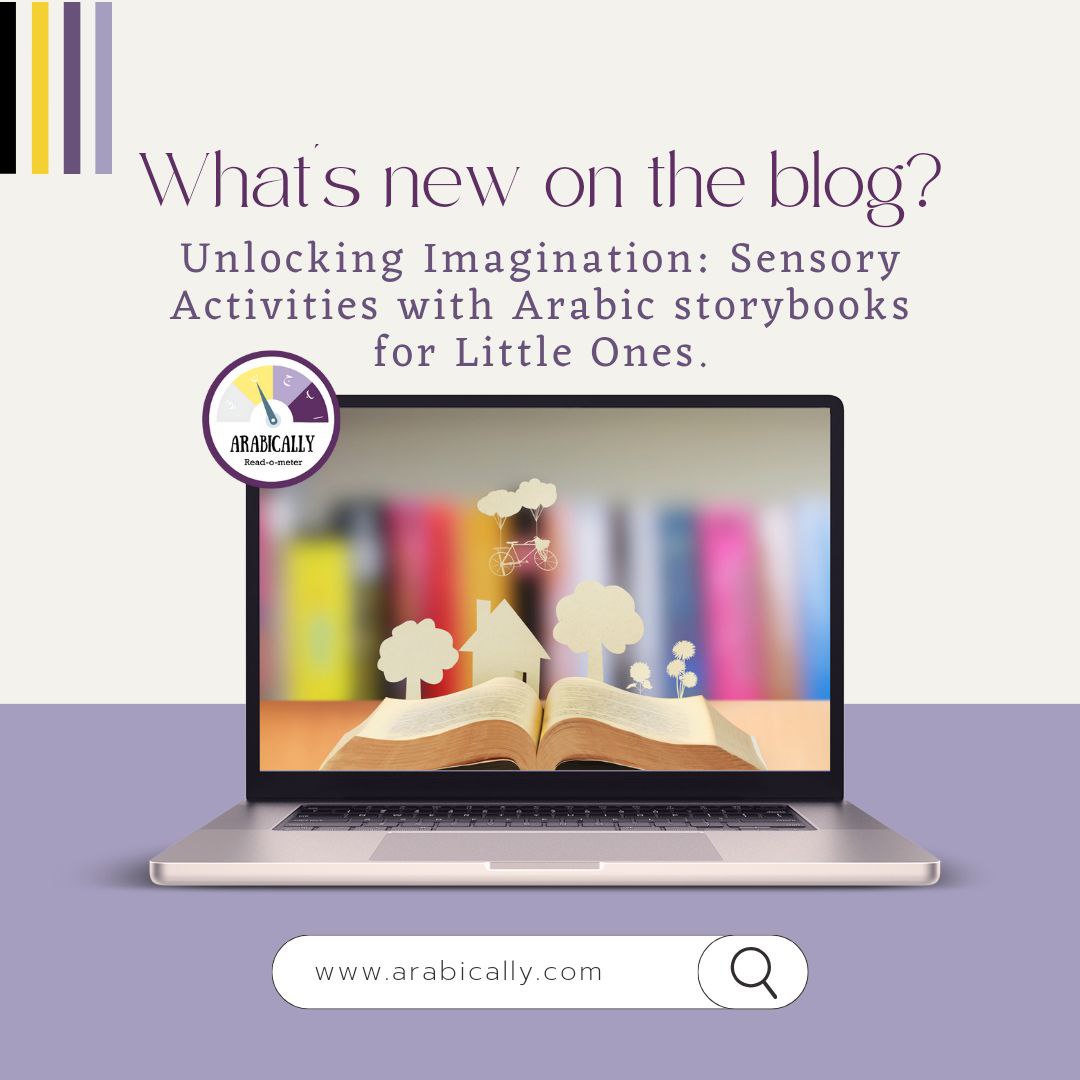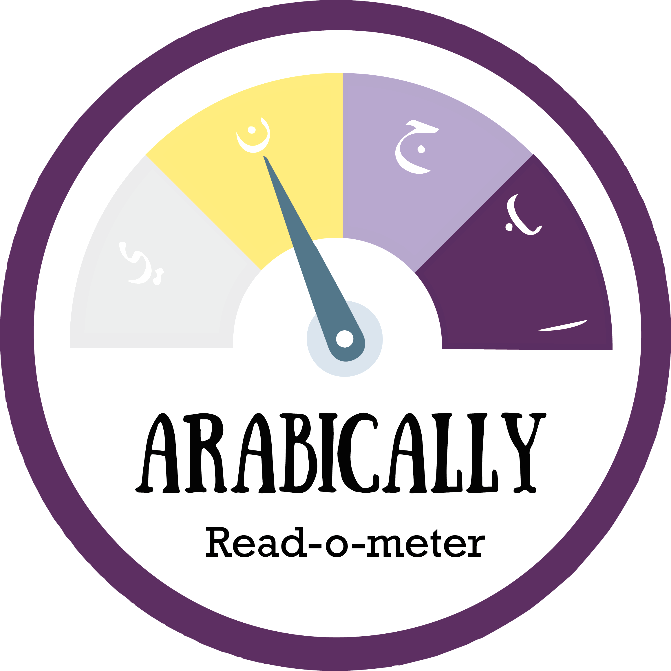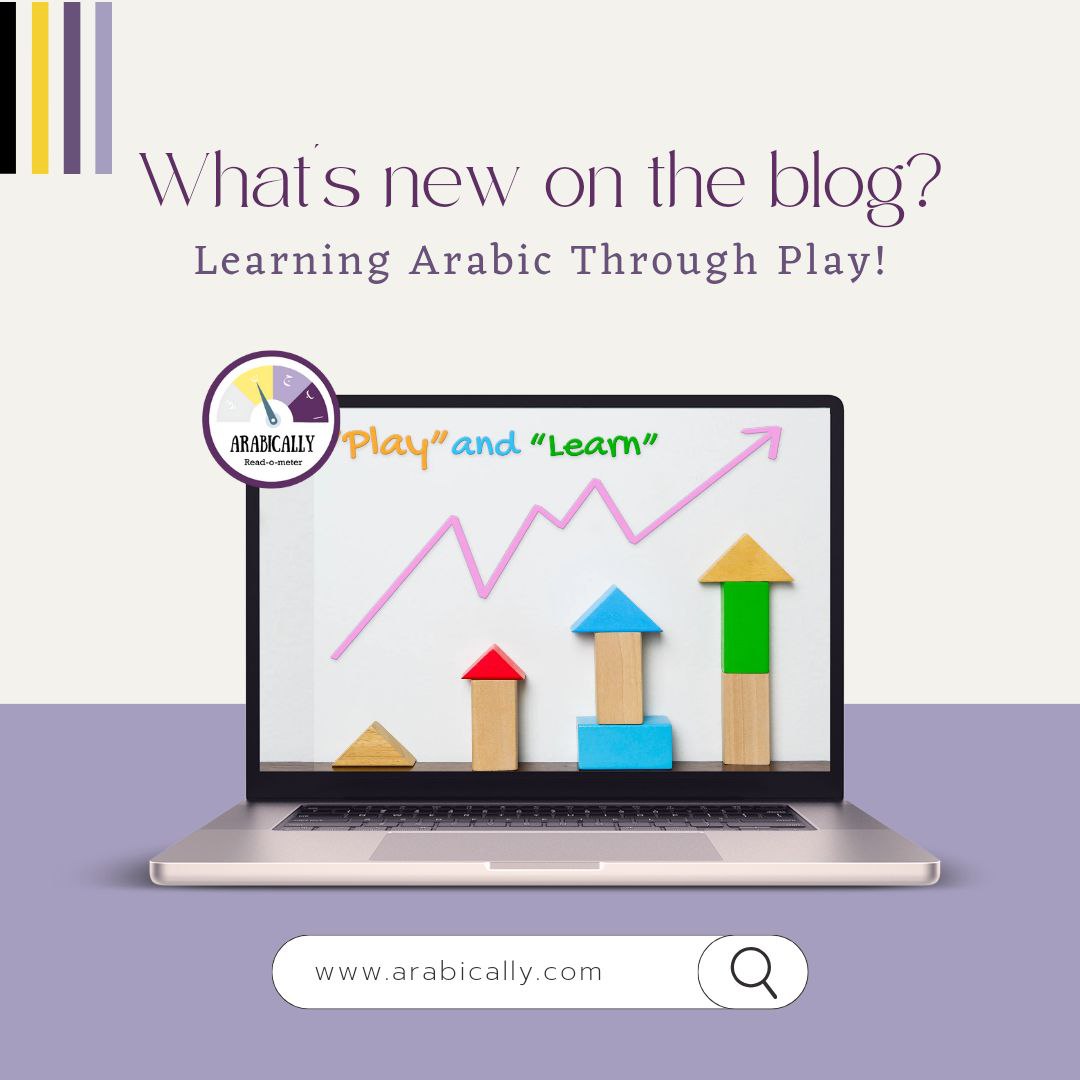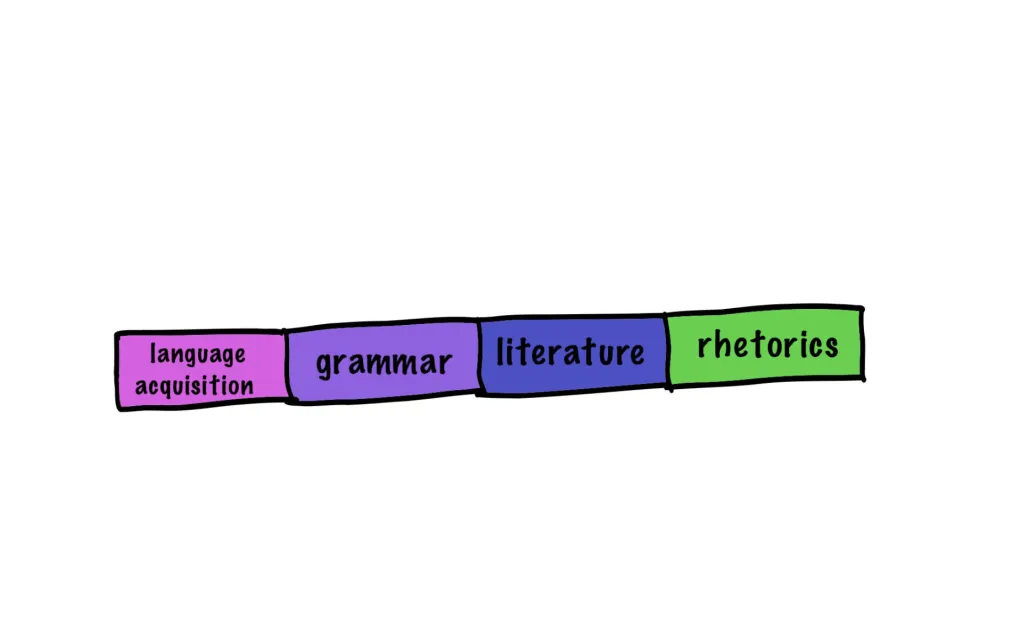
Sensory Activities with Arabic Storybooks
1. Make that connection
Reading books to babies or toddlers has a great impact on neural connections and the development of new brain cells. Start reading books to your babies as early as 0 months.
Practical tip: Always have a book by your bedside or car. Just reading a few pages will have an immense impact on the development of their brain.
2. Art of communicating
In a day where online media dominates our communication, books, and playgroups designed around books help kids work on their communication skills from a very young age. Reading books to kids bridges that gap and serves as an excellent way to inculcate social skills and literacy.
3. The skill of asking
Engage with your child during the storytelling session by asking different questions from the story to improve the skill of asking questions
Eg: Where is the particular object, the color of the object, the shape of the object, etc.
4. Language development
Reading as early as 0 months helps in understanding the language at a deeper level. Reading books with effective practices and immersive experiences paves the way for language development.
5. Sensory storytelling
Sensory storytelling is one of the best ways to engage children in a variety of activities that allow babies and toddlers to stimulate their senses. Children hear many words so make it interesting by displaying some of the things mentioned in the story such as props while narrating the story to make the kids get the texture, including food items so they can taste.
Practical tip: As the kids touch the objects make them repeat easy phrases such as ‘this is soft’, and ‘This is hard’.
6. Make the meanings clear
It is important to make the meanings of keywords clear while reading either by pointing to the picture or showing the object in real real-life situation. You need not explain each and every word in the book.
For 2nd language learners, minimize translating and explain by showing the object/picture.
7. Rich Vocabulary and Grammar
Kids need not be “taught” grammar; they acquire it naturally by reading books as they listen to proper grammatical sentences.
Practical tip: Be free to make your own improvisation having the story as a base.
You can change the pronouns and read it like this: ھي تقرأ، ھو یقرأ
8. Spark their interest
Don’t make reading a chore. Modulate your voice as you read to spark their interest which enhances comprehension. Some parts of the story can be made as a rhyme to make it fun which also helps in retention.
9. Repetition is the key
Constant exposure to words or sentences is the key to retention. Keywords from the story can be presented to them in different forms like showing an object, repeating it, etc.
10. Eye contact
For reading to be effective it is essential to have eye contact, especially with babies and toddlers. This helps to keep them engrossed and have a positive connection.
11. Be responsive
Kids are good observers. They love to imitate. So as you read make facial expressions based on the storyline.
Eg: Make a sad face when you read حزینة a happy face when you say سعیدة
————————————————————————————————————————
The above takeaways were extracted from a Guest presentation by Faria Alam (insta handle: arabic_isfun) during Arabically’s Early Arabic Reading Program, designed for mothers in the summer of 2023.
If you would like to be featured in our series or have something fascinating to share about Arabic, please get in touch with the Arabically team at [email protected]




